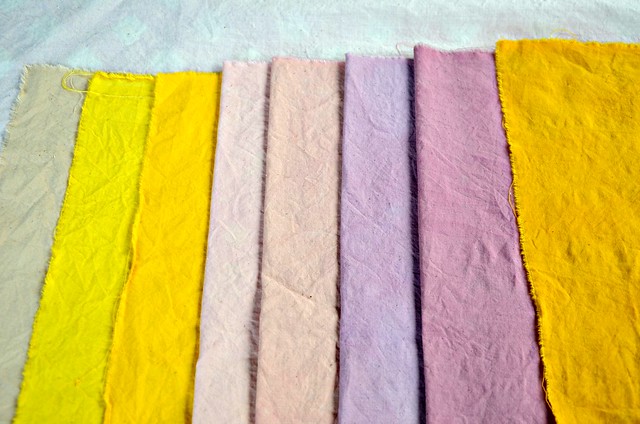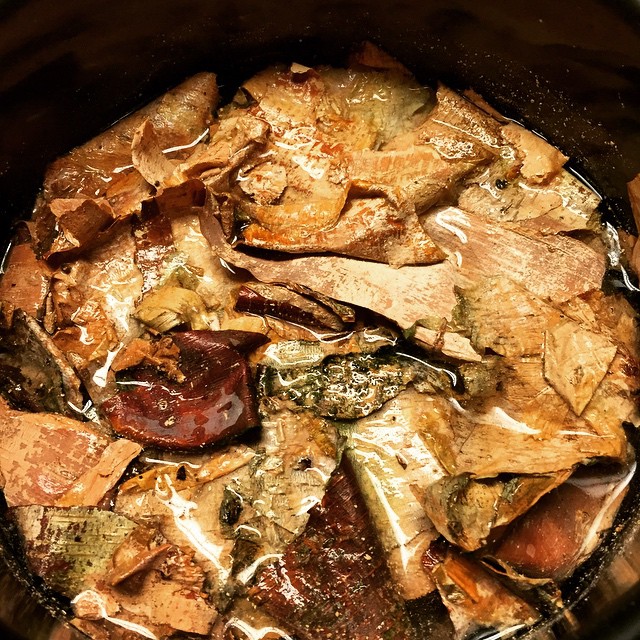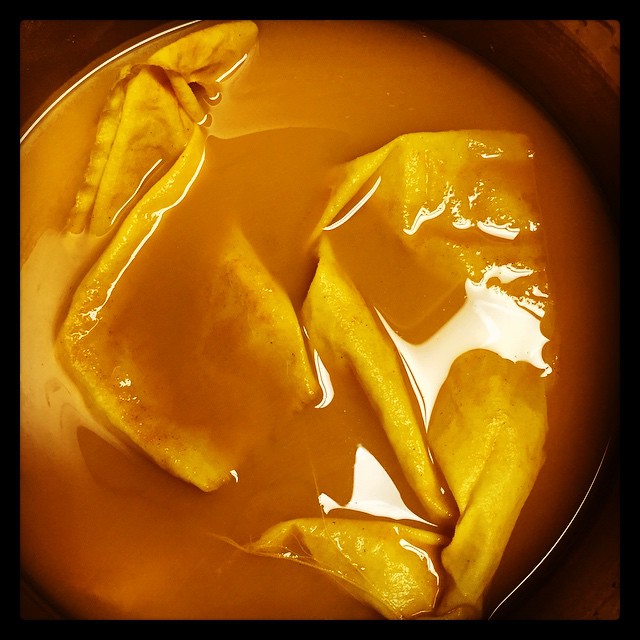from left to right: 1. Birch Bark. 2-3. Turmeric. 4-5. Beet Root. 6-7. Hibiscus Flowers. 8. Combo of 2-7.
Birch Bark
Welcome to my new addiction. Dyeing with plant and food dyes has taken over my mind and body, not to mention my kitchen. Last week I decided it was finally time to just jump in and do some dyeing as it's been on my to-do list for ages. Well, down the rabbit hole I fell!
Turmeric
This process is akin to mixing potions, conjuring spells and concocting surprises. Each batch of dye is unpredictable, at least for the first time for me. You never know exactly what you are going to get once you rinse the fabric after you pull it from the dye bath. It really is quite amazing!
Hibiscus Flowers
Nothing was a disappointment because it was all so interesting and exciting. With each experiment I gained more knowledge and appreciation for the art. Now I'm looking at plants and food in a whole new way. I have started a dye journal to keep track of my work; in it is a growing list of dye stuffs that I can't wait to try out. As I go for walks in my neighborhood, I'm searching out plants that I might be able to glean for my experiments.
Beet Root
For my first foray into the art of natural dyeing I kept it very simple. I used a lightweight unbleached cotton muslin for all of the dyes. I used what is considered the safest mordant (what helps fix the dye to the fiber/fabric) of Alum and Cream of Tartar in water. I simmered the fabric in the mordant for an hour.
For the dye baths I went with some research along with some intuition. Some were simmered in water for an hour, others simmered for less time. I did feel that I should have soaked the Birch Bark for a couple of days, but I was just a little impatient. Then I left the fabric in the dye baths for different amounts of time to see what would happen.
I am so looking forward to gaining more knowledge and dyeing more stuff. It really is such a joyous (if time consuming) process. I do suspect the household chores might suffer quite a bit. That's alright, it's all for art and science!
I want to thank Annie Cholewa for her encouragement and cheering me on to give this a go!
So, what have y'all been up to?






Wow, your dyeing is going so well already. I haven't done much of it myself, but my mother-in-law is an avid spinner/weaver/dyer and I love to see what she does. Annie's dyeing is so inspiring, I love reading about hers too. It sounds like you have a great new hobby! I look forward to seeing more. :)
ReplyDeleteYou're welcome. And these samples are so pretty!
ReplyDeleteYou'll probably find that on cotton some of these colours are more fast to light and/or washing than others, which is worth bearing in mind when you're deciding what to make with your lovely coloured cloth :o)
I have been looking/reading folkfibers.com and getting inspired by her naturally dyed fabrics for quilts. This project looks like so much fun! What are you going to make?
ReplyDeleteVery interesting. I like the finished results, but I also love those rich, dark colors in the dye baths!
ReplyDeleteI can see how this dying enthusiasm would really begin to catch you up. (I also love Annie's posts.)
ReplyDeleteMy lack of a large kitchen and any outdoor space keeps me as a vicarious enthusiast.
Your fabric colors are very, very beautiful. xo
They have come out beautifully. I love the hibiscus flower colour they are wonderful.
ReplyDeletei'm fascinated by natural dying! you got some gorgeous results!
ReplyDelete